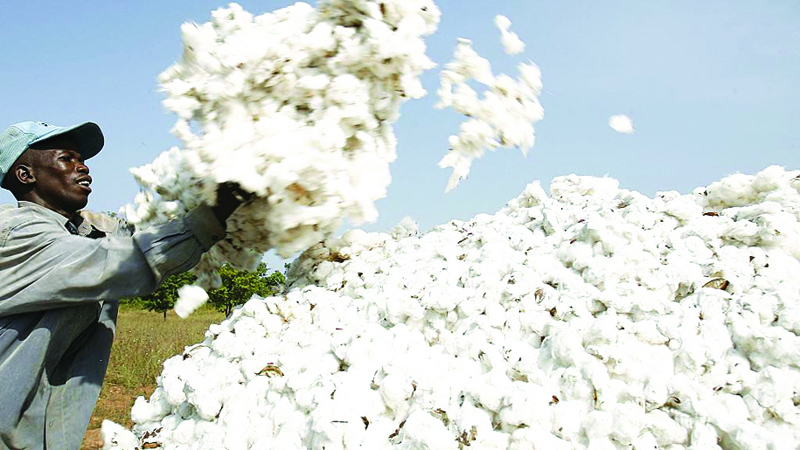 A farmer seen tossling cotton.
A farmer seen tossling cotton.TOME: In a bold but contested strategy, the West African state of Togo has bet heavily on the private sector to revive its struggling cotton industry. "White gold," as cotton is sometimes called, accounts for only between one and 4.3 percent of the country's GDP, bringing 500,000 jobs for a population of 8.8 million.
Yet cotton also has huge potential in terms of job creation, especially for the poorest and smallest producers in the marginalised north. Eyeing the success of privatisation in neighbouring Benin, Togo last December sold a majority stake in its largest cotton producer, the New Cotton Company of Togo (NSCT), to a Singaporean giant.
NSCT says it aims to produce 135,000 tonnes next year and 225,000 by 2025 -- a target that many say is a big ask. Production in the 2020-21 season was a meagre 67,000 tonnes, amounting to a dramatic 43 percent decrease over 2019-20. Many farmers switched to corn and soy as the NSCT lowered the price for a kilogram of raw cotton from 265 CFA francs ($0.48) in the 2019-2020 season to 225 CFA francs ($0.48 to $0.40) the following year.
"At least 40,000 cotton producers out of 153,000 abandoned their fields this last season," said Koussouwe Kouroufei, president of the National Federation of Cotton Farmers' Associations (FNGPC). The 2020-21 harvest suffered from "poor seed quality and bad weather in the north of the country," NSCT chairman Simfeitcheou Pre said.
Togo has cast envious eyes at its neighbour Benin, where privatisation has helped cotton output to rise from 324,000 tonnes in 2015-2016 to 700,000 tonnes last year. The transformation has been engineered by Benin's President Patrice Talon, a tycoon known as the "Cotton King" before he was elected in 2016. Benin is now the biggest cotton producer in the region, with the sector making up 12 percent of GDP.
Price support
Togo last December sold 51 percent of its shares in NSCT to Singapore-based agricultural conglomerate Olam International. Owned by Japan's Mitsubishi and Singapore's sovereign fund Temasek, Olam International is present in 60 countries, with a hefty focus on agri-business in Africa.
The state of Togo has retained 24 percent of NSCT shares and the farmers' association 25 percent. Under its new terms of operation, NSCT will be responsible for all cotton activities in the country, including supporting producers with fertilisers, ginning and sale.
The company says it will raise the floor price of raw cotton to 254 CFA francs ($0.46) per kilo to encourage production. International cotton prices have rebounded this year, peaking at 93 cents per pound (0.45 kilo) in February -- almost double from its lowest point in 2020. A processing factory is also being built in a new industrial zone, Adetikope, about 20 kilometres (12 miles) south of the capital Lome, with a capacity to transform 5,000 tonnes of fibre by 2022 and 25,000 tonnes over the new three years.
"We are hopeful that the new season will offer brighter perspectives for the entire industry," Martin Drevon, deputy director general in charge of operations at NSCT, told AFP. But some fret about the long-term impact from opening the door to multinational giants. They fear a loss of sovereignty.
"If we don't step up, in five years all of Togo's cotton will be in the hands of this group," said Emmanuel Sogadji, president of Togo's consumer association (LCT). "And it's not just cotton. It's the same for soy and other agricultural products. Even in a liberal economy, we should promote domestic investors." - AFP










